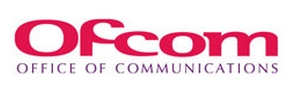Ofcom has published a draft code today to tackle illegal file-sharers by passing their information onto copyright owners.
The regulator was required to put together the code as part of the Digital Economy Act voted through in 2010.

It states that ISPs must send letters to customers when they have been connected to illegal file-sharing activity on their accounts. The responsibility for identifying the activity in the first place will fall to copyright owners, who will need to monitor peer to peer (P2P) networks and identify the IP addresses taking part in file sharing before passing these details on to ISPs. Their processes will have to be agreed on by Ofcom.
Once three letters have been sent – with a minimum of one month in between each letter and during a 12 month period – copyright owners will be allowed to request anonymous information on specific IP addresses from ISPs to see how regularly they have been sharing content and at what volumes.
The owners will then be able to seek a court order to identify the customer fully in order to take legal action against them.
Users will be able to appeal any of the accusations sent their way through an independent appeals body that Ofcom will appoint after the code consultation period ends.
Claudio Pollack, the consumer group director at Ofcom, said: “These measures are designed to foster investment and innovation in the UK’s creative industries, while ensuring internet users are treated fairly and given help to access lawful content.
“Ofcom will oversee a fair appeals process, and also ensure that rights holders’ investigations under the code are rigorous and transparent.”
However, Jim Killock, director of the Open Rights Group and long-term critic of the Digital Economy Act, said there was still a risk innocent consumers would end up having to defend themselves in court.
"Digital revenues are going up, the music and film industry are moving in the right direction, yet this cumbersome policy is still lumbering forward,” he told Computer Weekly. "Ofcom are being asked to put lipstick on a pig with this code.”
"The appeals are a joke. The Government has decided that 'I didn't do it' is not a defence. Some people will almost certainly end up in court having done nothing wrong."
Other controversial elements of the Digital Economy Act suggested at the time, such as reducing customer bandwidth, blocking internet access or suspending accounts, have not been withdrawn entirely. However, Ofcom said these could not be brought into practice until the code has been in force for a minimum of a year and extra legislation, as well as agreement from parliament, would be necessary before the measures could be put in place.
The code also states both ISPs and copyright owners must embark on awareness campaigns so consumers know what they are doing is against the law and also to point them towards legal means of acquiring the likes of film, TV programmes or music online.
The first customers to be affected will be those getting their services from BT, Everything Everywhere, O2, Sky, TalkTalk Group and Virgin Media – all of which have more than 400,000 fixed broadband lines and cover 93% of retail broadband in the UK.
The consultation on the code has now begun and will be subject to review by the European Commission. It will then be presented to parliament at the end of 2012 and ISPs will be given a year to prepare before the first letters hit the mail in early 2014.





